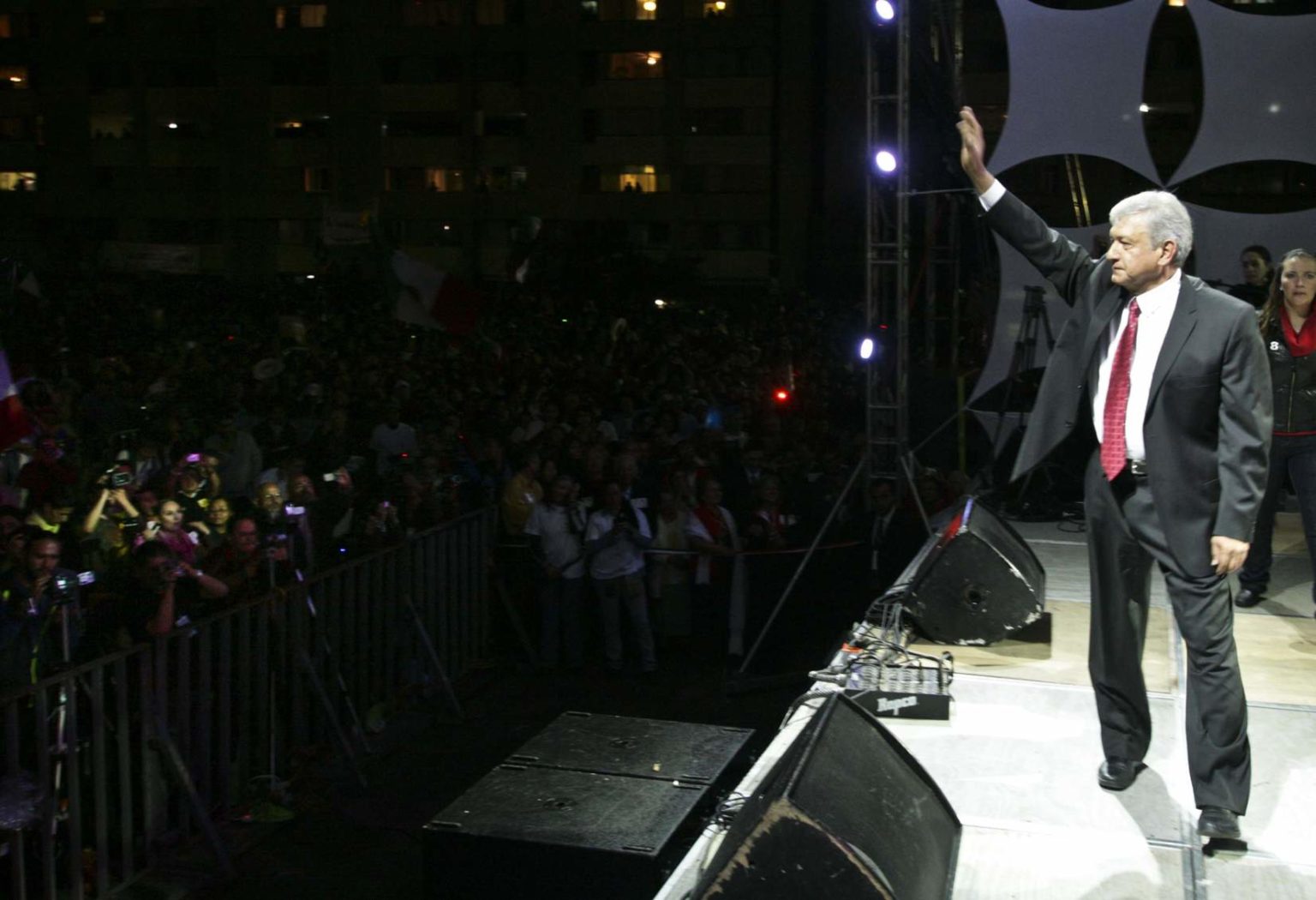Andrés Manuel López Obrador, who won the election to become Mexico’s President on July 1, stated in a press conference that he will ban the horizontal drilling technique known as hydraulic fracturing (“fracking”) upon assuming the office on December 1.
The announcement would be a devastating blow to the oil and gas industry, which had its eyes set on drilling in Mexico’s northern frontier in an area known as the Burgos Basin. The Burgos is a southern extension of the Eagle Ford Shale, a prolific field situated in Texas.
The Associated Press broke the story on the press conference and the announcement. When asked about his plans for fracking at the press conference, López Obrador said “We will no longer use that method to extract petroleum,” according to the AP.
Additionally, Obrador stated that a key energy sector privatization policy, enacted in 2013 after the Mexican Congress passed multiple constitutional amendments, would be “corrected.” It is that privatization package, approved by departing Mexican President Enrique Peña Nieto, which opened the country to international oil and gas companies and beyond solely the state-owned company Petróleos Mexicanos (PEMEX).
López Obrador announces that fracking will be banned in Mexico.
PEMEX has been preparing for the first auction round to exploit shale gas reserves in states like Coahuila, Chihuahua, Tamaulipas and Veracruz.https://t.co/ibSSpWi5dY— martha pskowski (@psskow) August 1, 2018
In López Obrador’s announcement, he stated that his intention was to do something about “private electricity generation contracts that displaced the government-owned Federal Electricity Commission, known as the CFE,” reported the AP.
Saying that this trend would be “corrected,” though not explictly stating he would overturn existing contracts, López Obrador bluntly stated that “The neoliberal governments deliberately closed the CFE plants in order to buy electricity from foreign companies at very high prices. All of that will be corrected.”’
López Obrador’s political party, MORENA, also quoted him as saying “Privileges of public servants, years of abuse to the detriment of the people of Mexico” in a tweet sent out promoting the AP‘s piece.
“Privilegios de servidores públicos, abuso de años con perjuicio al pueblo de México.”
https://t.co/FVkFzKPabC— Morena#AMLO (@MorenaExterior_) August 1, 2018
Prior to the announcement, questions had been raised as to whether López Obrador would embrace the industry after running a populist presidential campaign against the energy sector privatization package.
Indigenous people and grassroots activists in Mexico have protested and filed lawsuits against pipeline companies, such as TransCanada and Sempra Energy, who are attempting to flood Mexico’s energy grid with U.S.-produced natural gas obtained via fracking. All oil and gas auctions have been put on hiatus in the country until López Obrador assumes the office of the presidency.
The oil and gas industry has yet to react to the news. Media relations staffers for TransCanada, Sempra and the American Petroleum Institute did not respond to a request for comment.
Thomas Tunstall, Research Director for the University of Texas at San Antonio’s Institute of Economic Development, told DeSmog that because fracking is still years from getting off the ground in Mexico to begin with, the ban under López Obrador’s watch for now is mostly a symbolic one.
“Near-term, a ban on hydraulic fracturing in Mexico would have no impact, economically or environmentally. Unlike the United States, Mexico has substantial untapped conventional oil and gas reserves: shallow water, deep water and even onshore conventional,” said Tunstall. “In addition, most of the unconventional/shale opportunities lie in Northern Mexico, which lacks significant infrastructure (housing, roads, rail, skilled workforce). Best estimates are that any unconventional oil and gas production activity in Mexico is at least 5-10 years away, no matter what government policy is.”
Tunstall also says that he believes the pipeline build-out in Mexico, linking U.S. shale fields to Mexico’s energy grid, will remain in force.
“[T]his is being driven by Mexico’s desire to generate electricity from natural gas instead of fuel oil and coal, in order to improve air quality,” Tunstall further explained. “Pipelines are much less expensive that the alternative of shipping it in via LNG tankers, which is currently being done. So my guess is that natural gas pipelines into Mexico will continue to be built.”
Wenonah Hauter, Executive Director for the group Food & Water Watch, sounded a slightly more optimistic tune about the decision in an official statement sent to DeSmog.
The “plan to ban fracking in Mexico represents the latest common-sense decision by a world leader to prohibit this inherently toxic, polluting practice,” remarked Hauter. “President-elect Obrador is moving in the right direction on many issues, including energy and the environment. He can move even farther by pledging to transition Mexico to a fully clean, renewable energy future, thereby setting a remarkable example for its neighbors to the north.”
While López Obrador appears to have put the kibosh on fracking in Mexico for now, he has signaled support for a buildout of oil and gas refineries throughout the country, which would connect to its burgeoning pipeline population. That includes a proposed $8.6 billion refinery owned by Pemex in his home state, Tabasco.
*This article has been updated with quotes from the U.S.-based environmental advocacy group Food & Water Watch, a University of Texas at San Antonio researcher and on unsucessful attempts to get comment from various stakeholders in the oil and gas industry.
Photo Credit: Javier Hidalgo| Flickr
Subscribe to our newsletter
Stay up to date with DeSmog news and alerts






